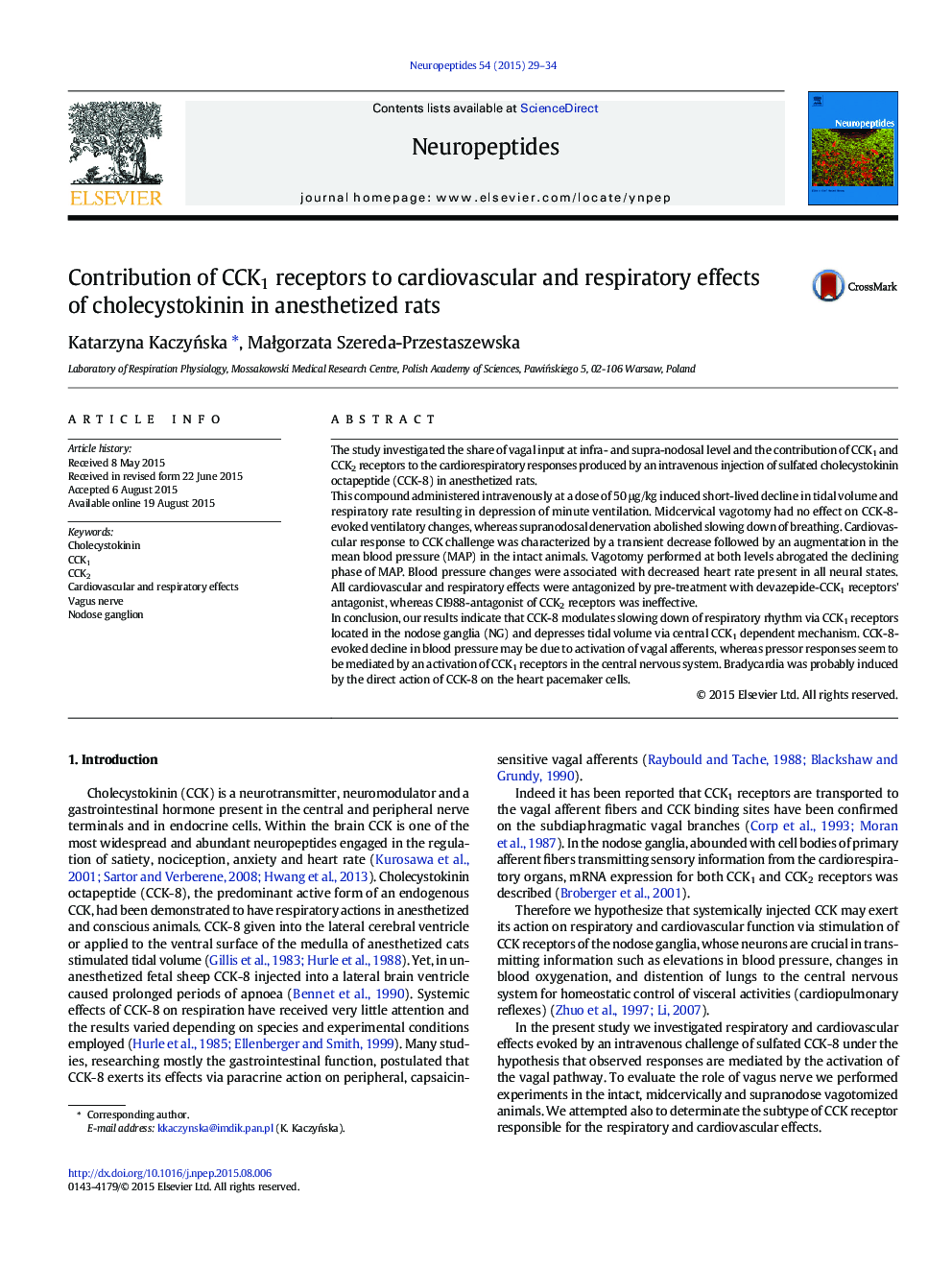| Article ID | Journal | Published Year | Pages | File Type |
|---|---|---|---|---|
| 2807988 | Neuropeptides | 2015 | 6 Pages |
•CCK-8 depresses respiration and affects cardiovascular system via CCK1 receptors•The respiratory rate decrease depended on stimulation of the nodosal CCK1 receptors•Tidal volume depression relayed on the central CCK1 receptors
The study investigated the share of vagal input at infra- and supra-nodosal level and the contribution of CCK1 and CCK2 receptors to the cardiorespiratory responses produced by an intravenous injection of sulfated cholecystokinin octapeptide (CCK-8) in anesthetized rats.This compound administered intravenously at a dose of 50 μg/kg induced short-lived decline in tidal volume and respiratory rate resulting in depression of minute ventilation. Midcervical vagotomy had no effect on CCK-8-evoked ventilatory changes, whereas supranodosal denervation abolished slowing down of breathing. Cardiovascular response to CCK challenge was characterized by a transient decrease followed by an augmentation in the mean blood pressure (MAP) in the intact animals. Vagotomy performed at both levels abrogated the declining phase of MAP. Blood pressure changes were associated with decreased heart rate present in all neural states. All cardiovascular and respiratory effects were antagonized by pre-treatment with devazepide-CCK1 receptors' antagonist, whereas CI988-antagonist of CCK2 receptors was ineffective.In conclusion, our results indicate that CCK-8 modulates slowing down of respiratory rhythm via CCK1 receptors located in the nodose ganglia (NG) and depresses tidal volume via central CCK1 dependent mechanism. CCK-8-evoked decline in blood pressure may be due to activation of vagal afferents, whereas pressor responses seem to be mediated by an activation of CCK1 receptors in the central nervous system. Bradycardia was probably induced by the direct action of CCK-8 on the heart pacemaker cells.
